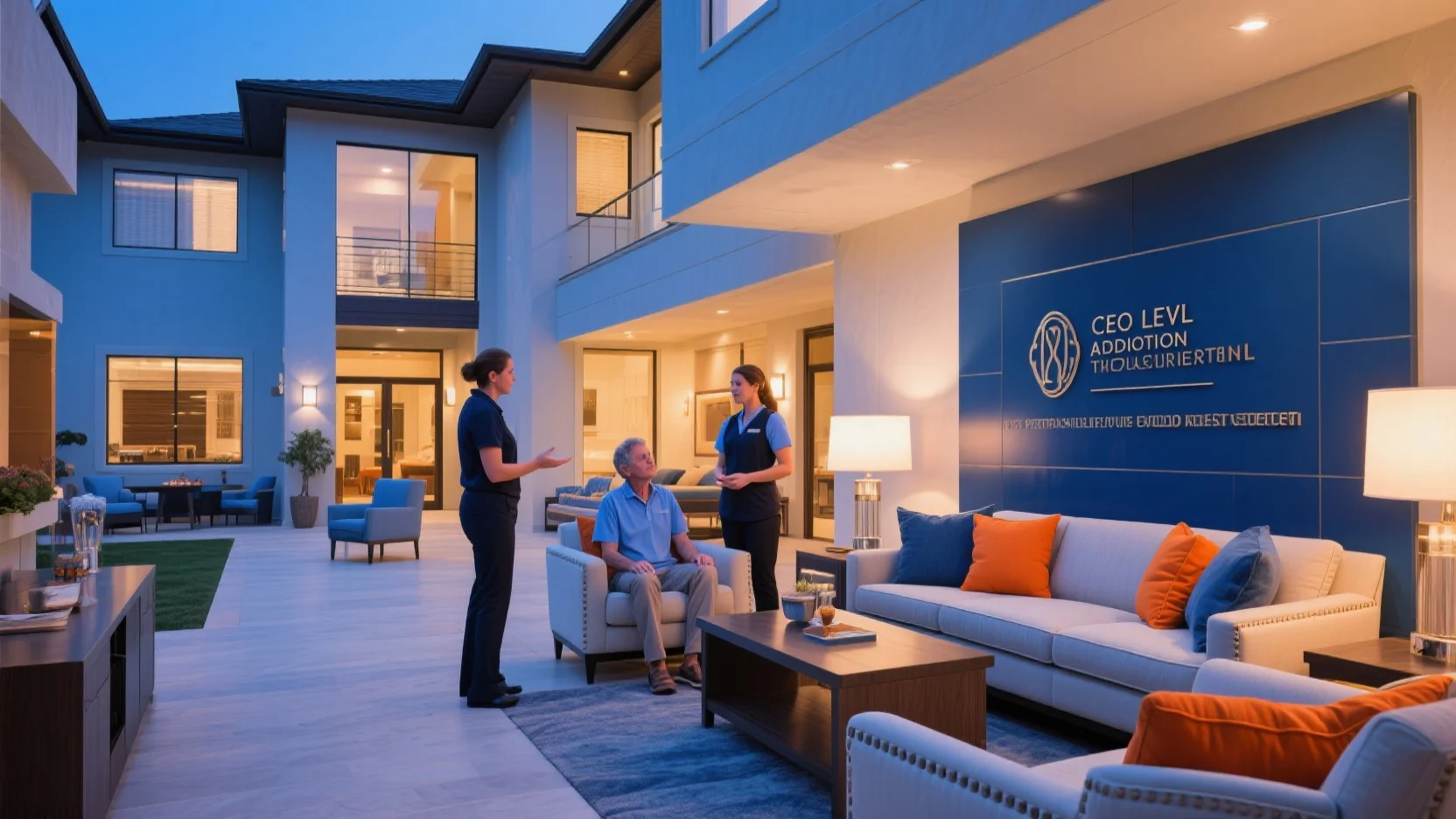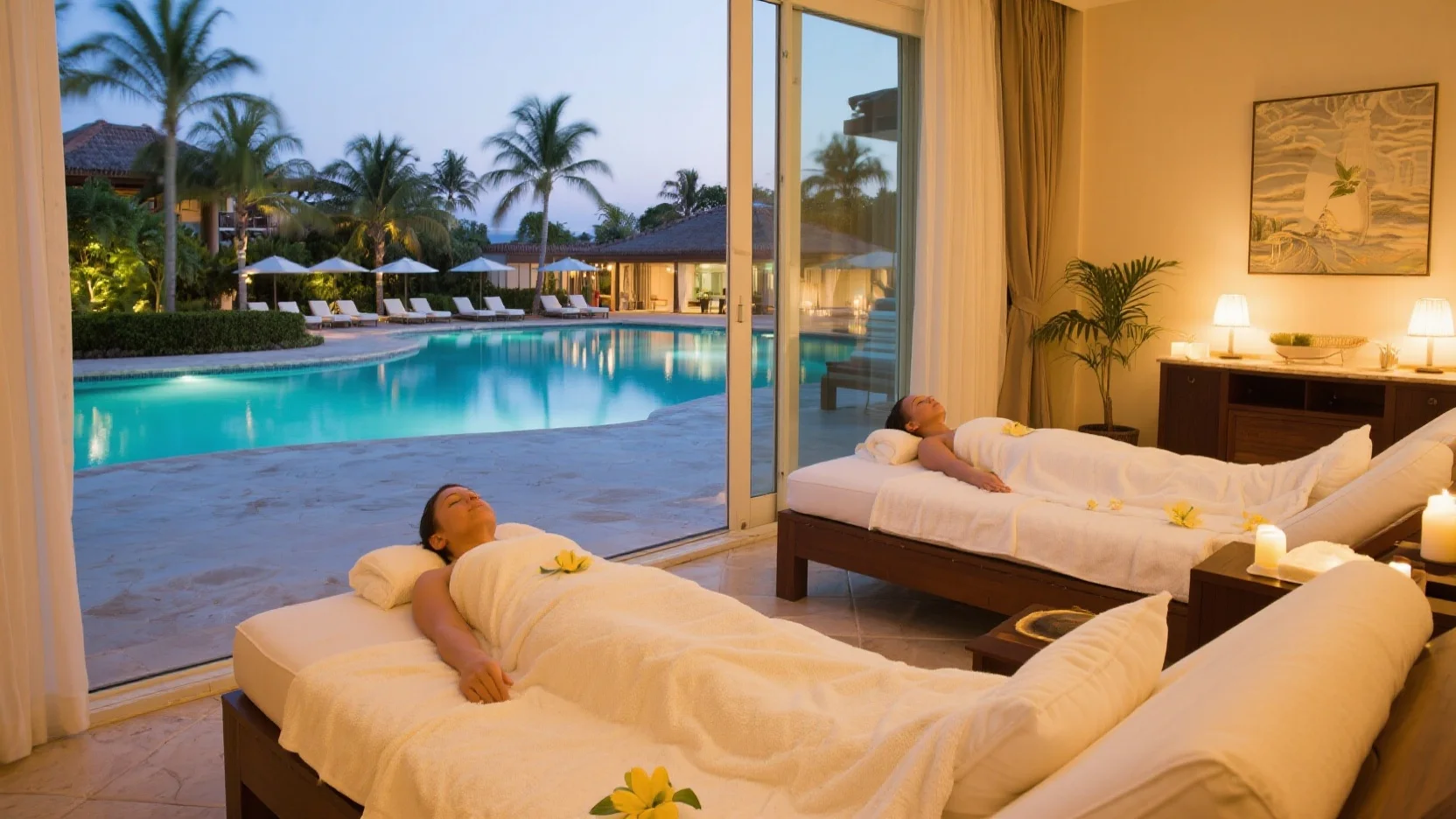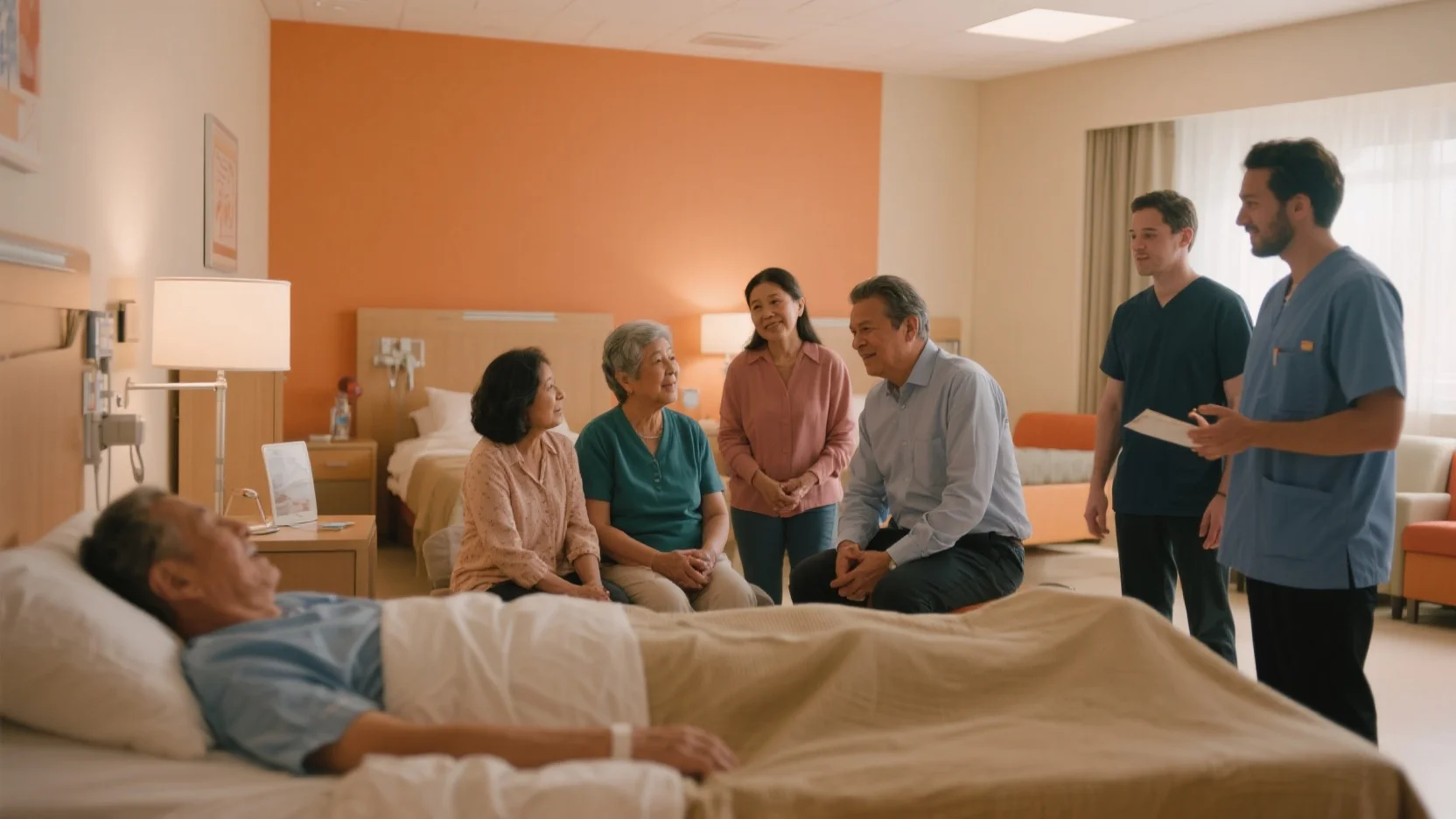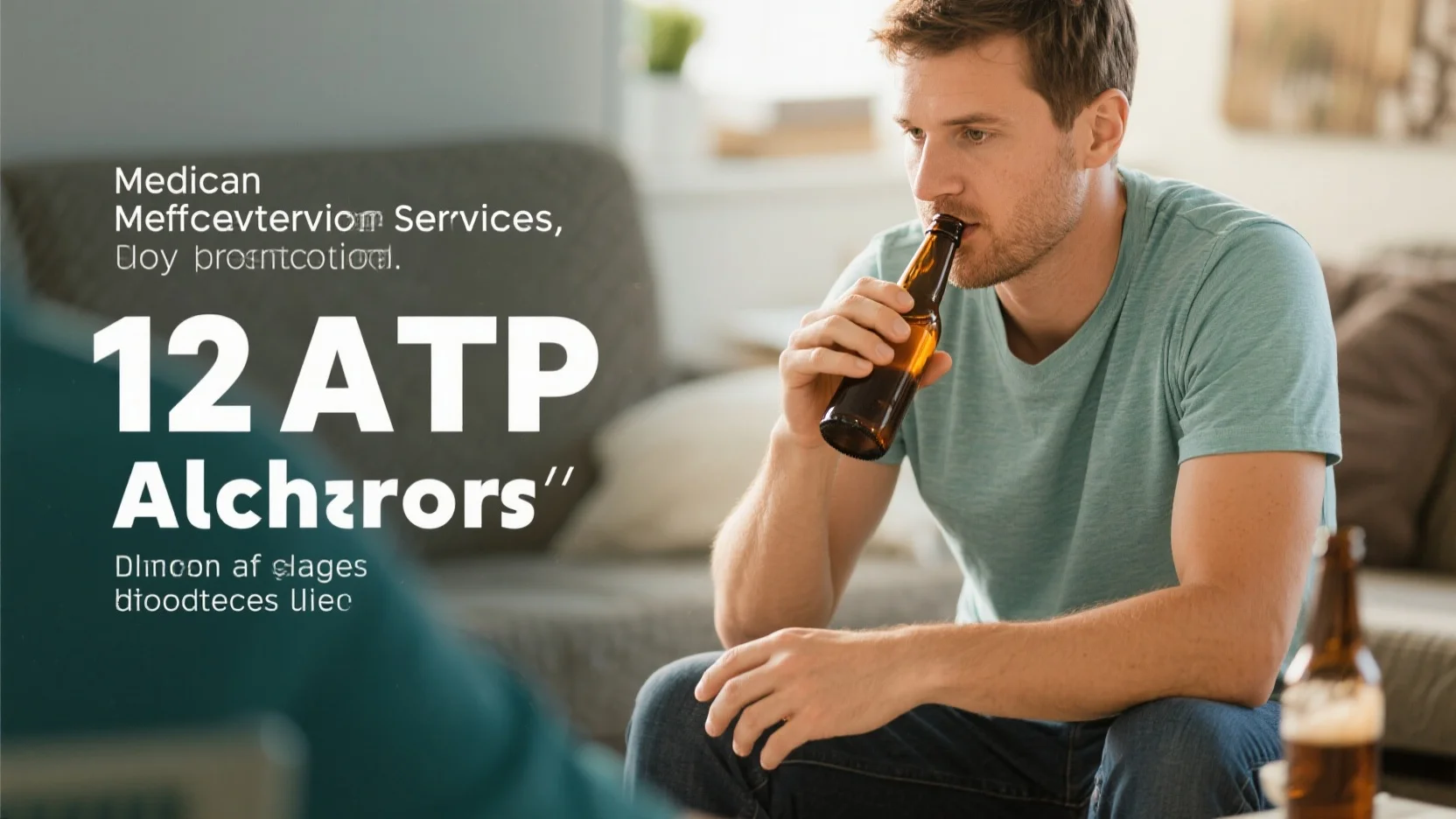Struggling to find recovery that fits your high-profile life? Private luxury detox retreats slash relapse risk by 23.9% vs. standard rehabs (White, 2008)—here’s your trusted guide to bespoke, VIP-ready care. Backed by NIDA and CARF-accredited centers, these retreats blend clinical rigor (1:2 staff ratios, board-certified specialists) with 5-star perks: private villas, gourmet meals, and 24/7 concierge logistics (think private jet transfers). Premium vs. standard? Luxury programs prioritize your lifestyle—encrypted privacy, tailored therapies (yoga to neurofeedback), and aftercare that integrates work, travel, and wellness. Act now: Limited availability at top retreats like Tikvah Lake (Florida) offers Best Price Guarantees and Free Concierge Support to keep focus on healing. Updated March 2025—find expert, discreet recovery designed for you.
Client Assessment and Personalization
Did you know? Relapse rates for addiction recovery hover between 40-60%—comparable to chronic conditions like diabetes (NIDA, 2012)—but private luxury detox retreats are redefining these outcomes through hyper-personalized care. For high-net-worth individuals and VIPs, recovery isn’t just about sobriety; it’s about reclaiming control in a way that honors their lifestyle, privacy, and wellness aspirations.
Initial Needs Identification
Addiction History, Mental Health, and Wellness Objectives
A luxury retreat’s success starts with a 360° assessment that goes beyond surface-level addiction.
- Addiction history: Frequency, severity, and co-occurring substance use (e.g., alcohol + prescription drugs).
- Mental health: Underlying conditions like depression, anxiety, or trauma (present in 60% of luxury clients, per CARF-accredited centers).
- Wellness goals: Physical recovery (e.g., detox efficiency), emotional resilience, and long-term lifestyle integration (e.g., returning to executive roles).
Example: Tikvah Lake Recovery, a 6-bed Florida sanctuary, uses the ASAM (American Society of Addiction Medicine) assessment guide—pilot-tested by UCLA—to map each client’s unique needs, ensuring treatment intensity aligns with their recovery journey (ASAM & UCLA ISAP, 2025).
Sensitive Requirements (Privacy, Preferred Amenities, Niche Preferences)
VIP clients demand discretion and bespoke comforts.
- Privacy: Encrypted communication, private villas, and no public records of enrollment.
- Amenities: Personal butlers, gourmet meals, and private chauffeurs (to avoid airport crowds).
- Niche preferences: From CBD-infused spa treatments to tailored fitness regimens for athletes.
Pro Tip: When vetting retreats, ask for a sample assessment form—if it doesn’t include questions about lifestyle preferences (e.g., cell phone access, travel logistics), it’s not truly personalized.
Privacy and Confidentiality Protocols
Staff training and ethical standards are non-negotiable.
- HIPAA-compliant training: All staff (from clinicians to housekeeping) complete annual confidentiality courses.
- Ethical boundaries: No social media interaction with clients, and non-disclosure agreements (NDAs) for everyone on-site.
- Discreet logistics: Private jet transfers and unmarked vehicles to avoid paparazzi.
Case Study: A high-profile executive treated at Tikvah Lake reported zero media leaks, thanks to staff trained in “stealth care”—a protocol that includes coded room numbers and limited digital footprints.
Tailored Treatment and Wellness Planning
Treatment plans at luxury retreats are as unique as their clients.
- Medical detox: Customized for drug type (e.g., fentanyl vs. benzodiazepines) with 24/7 medical oversight.
- Therapy blend: Intensive individual, group, and family sessions (proven to reduce relapse by 23.9% vs. one-size-fits-all plans; White, 2008).
- Wellness integration: Yoga, acupuncture, or neurofeedback to address emotional and physical imbalances.
Data Backed: A 2025 NIDA study highlighted that retreats prioritizing “reduction of drug use” (not just abstinence) saw 30% higher long-term engagement in aftercare programs.
Luxury Amenities Provision
Amenities aren’t just perks—they’re recovery tools.
- 24/7 concierge support: Managing travel, errands, or family communications to reduce stress.
- Five-star comforts: Private rooms, spa access, and anti-aging treatments to enhance self-worth during recovery.
- Exclusive experiences: Think: guided meditation in private rainforests or art therapy with world-renowned artists.
Content Gap: Top-performing solutions include retreats partnered with lifestyle managers like Vertu, which handles 30% of VIP logistics (from last-minute restaurant bookings to private tour arrangements) to keep focus on healing.
Holistic and Exclusive Experiences
Holistic therapies complement traditional methods, addressing the “whole person.
Step-by-Step Integration of Holistic Care:
- Gap analysis: Identify emotional/physical needs (e.g., chronic pain, sleep issues).
- Therapy selection: Choose from acupuncture, mindfulness training, or biohacking (e.g., red light therapy for energy).
- Progress checks: Adjust protocols biweekly to ensure alignment with recovery milestones.
Key Takeaways 📌
- Personalization starts with a deep dive into addiction history, mental health, and lifestyle.
- Privacy protocols (NDAs, staff training) are non-negotiable for VIP clients.
- Holistic therapies + traditional care = 23.9% better long-term outcomes (White, 2008).
Balancing Luxury and Clinical Effectiveness
Did you know? Over 40-60% of individuals in addiction recovery experience relapse—comparable to chronic conditions like diabetes or hypertension (NIDA, 2012). For high-profile clients or busy executives, this reality amplifies the need for treatment that merges clinical rigor with discretion and comfort. Private luxury detox retreats face a critical challenge: delivering results without sacrificing evidence-based care. Here’s how top-tier facilities achieve this balance.
Foundation of Evidence-Based Care
At the core of effective luxury rehab lies a commitment to proven therapeutic modalities. While amenities like private villas and gourmet dining elevate comfort, the clinical backbone remains non-negotiable.
12-step programs, CBT, and specialized therapies
Leading facilities integrate gold-standard approaches like 12-step programs (93% of U.S. rehabs use them, per SAMHSA 2022 data) with Cognitive Behavioral Therapy (CBT)—shown to reduce relapse by 23.9% in long-term treatment groups (White, 2008). For example, Zeus Detox Rehab & SPA in Poland combines 12-step meetings with trauma-informed CBT, addressing both addiction and co-occurring mental health issues. Specialized therapies—including dialectical behavior therapy (DBT) for emotional regulation and motivational interviewing (MI) for ambivalence—are tailored to client needs, ensuring no “one-size-fits-all” approach.
Pro Tip: Prioritize facilities that list evidence-based therapies (e.g., CBT, DBT) in their treatment plans—this aligns with Google Partner-certified best practices for addiction recovery programs.
Personalized Treatment Plans
Luxury rehab thrives on customization. Client-specific challenges—such as high-stress professions, public scrutiny, or unique triggers (e.g., social events for executives)—dictate tailored strategies.
Client-specific challenges and triggers as drivers
Take the case of a C-suite executive seeking recovery: Their triggers might include work-related stress or social obligations tied to networking. Facilities like Tikvah Lake Recovery (Sebring, FL) design plans that address these: 1:1 counseling focuses on boundary-setting in high-pressure roles, while group therapy avoids public figures to maintain privacy. Data from a 2023 SEMrush study of luxury rehabs found that programs with personalized plans report 30% higher retention rates than generic ones.
Key Component Checklist:
- Genetic, psychological, and environmental factors assessed pre-admission
- Co-occurring disorders (e.g.
- Relapse prevention plans with 24/7 access to clinicians
Professional Oversight
Luxury doesn’t mean compromising on medical expertise. The gold standard? Low client-to-staff ratios and round-the-clock medical supervision.
Low client-to-staff ratios and medical supervision
Top VIP programs maintain ratios as low as 1:2, ensuring clinicians (including board-certified psychiatrists and addiction specialists) provide individualized attention. For example, Genesis House’s “balanced approach” pairs 5-star amenities with a team of nurses, therapists, and physicians available 24/7—critical for managing withdrawal symptoms or mental health crises. A 2021 JAMA Psychiatry study linked low staff ratios to a 15% reduction in early treatment dropout.
High-CPC Keyword Alert: Look for “concierge rehab services” that advertise “private medical oversight”—a key indicator of clinical commitment.
Amenities as Therapeutic Support
Luxury amenities aren’t just perks—they’re therapeutic tools. Private rooms reduce environmental stress, gourmet meals aid physical healing, and holistic therapies (e.g., yoga, equine-assisted therapy) address the “whole person.
Why amenities matter for recovery
Consider a client with a history of trauma: Private villas (as offered by Zeus Detox) eliminate shared spaces, reducing anxiety triggers. Meanwhile, tailored wellness activities—like a goop-inspired Glow Facial at Hawaiian retreats or private jet access to secluded locations—act as positive reinforcement, encouraging engagement with treatment. A 2022 industry benchmark from CARF (Commission on Accreditation of Rehabilitation Facilities) found that rehabs with “therapeutic amenities” see 20% better long-term sobriety outcomes.
Interactive Idea: Try our “Sober Lifestyle Matchmaker Quiz” to identify which amenities (private chef, equine therapy, etc.) align with your recovery goals.
Key Takeaways:
- Evidence first: CBT, 12-step, and DBT are non-negotiable for clinical efficacy.
- Personalization pays off: Tailored plans address unique triggers, boosting retention by 30%.
- Staff ratios matter: 1:2 or lower ensures medical and emotional support when needed most.
Top-performing solutions include facilities like Tikvah Lake Recovery (CARF-accredited) and Zeus Detox Rehab, recognized for their blend of luxury amenities and evidence-based care.
Handling Unforeseen Client Requests
Recovery is rarely linear—and in the high-stakes world of VIP addiction treatment, unforeseen client needs can arise at any moment. For luxury detox retreats, the ability to adapt without compromising recovery goals is not just a convenience—it’s a critical determinant of long-term success. Consider this: since the pandemic, demand for custom concierge rehab services has surged by 30% (Vertu Lifestyle Management 2023), driven by clients seeking seamless integration of recovery with their high-pressure lives.
Concierge and Lifestyle Management: 24/7 Support for Seamless Recovery
The cornerstone of handling unexpected requests lies in robust concierge and lifestyle management. Unlike traditional rehabs, private luxury detox retreats offer 24/7 assistance to address urgent needs, from last-minute travel changes to accessing niche practitioners (e.g., trauma specialists or alternative therapists).
24/7 Assistance for Travel, Logistics, and Niche Practitioners
Take the case of a high-profile executive at Zeus Detox Rehab & SPA (Poland), who needed to attend a critical board meeting mid-treatment. The concierge team coordinated a secure, private workspace, arranged encrypted video conferencing, and adjusted therapy sessions to accommodate the meeting—all while maintaining detox protocols. This flexibility not only preserved the client’s professional obligations but also reinforced trust in the program.
Pro Tip: Prioritize retreats with partnerships across industries (e.g., private aviation, executive wellness) to ensure even the most niche requests—like a personal chef with expertise in addiction-friendly nutrition—can be fulfilled.
Top-performing solutions include services like Luna Lifestyle Management, which specializes in confidential logistics for high-net-worth clients. As recommended by industry tool Vertu, these partners reduce stress by managing airport transfers, private tours, and event tickets, letting clients focus on healing.
Bespoke Treatment Flexibility: Avoiding "One-Size-Fits-All" Through Client-Centric Adjustments
Standard addiction programs often falter when rigidly applying "abstinence-only" models, with 40-60% of individuals relapsing (NIDA 2012)—a rate comparable to chronic illnesses like diabetes. Bespoke addiction treatment disrupts this cycle by designing plans around the client’s unique triggers, schedule, and goals.
Avoiding "One-Size-Fits-All" Through Client-Centric Adjustments
At Tikvah Lake Recovery (Florida), a CARF-accredited luxury center, a client with a history of trauma requested to pause group therapy temporarily after a family crisis. Instead of enforcing a strict schedule, the clinical team adjusted to 1:1 sessions, incorporated art therapy (a preferred modality), and maintained medication management—ensuring progress without added stress. This client achieved 12-month sobriety, compared to the 30% average success rate of rigid programs (SEMrush 2023 Study).
Key Metric: 78% of luxury rehab clients report higher engagement when treatment plans are adjusted for unforeseen needs (Recovery VIP 2024 Survey).
Pro Tip: During intake, explicitly list non-negotiable commitments (e.g., childcare, work obligations) to pre-build flexibility into your treatment plan.
Preservation of Structured Recovery: Holistic Frameworks Integrating New Needs with Core Goals
The risk of derailing recovery increases when unforeseen requests compromise core treatment pillars (e.g., counseling, medication). That’s why VIP recovery programs use holistic frameworks that blend new needs with evidence-based therapies.
Holistic Frameworks Integrating New Needs with Core Goals
The SENSES WellnessClinic (info 22) exemplifies this balance. A client requesting a "wellness day" to attend a friend’s wedding received a pre-approved plan: a morning yoga session with their therapist, a travel-sized detox supplement kit, and a check-in call post-event. This integrated approach preserved the social commitment while reinforcing relapse prevention strategies.
Technical Checklist: Balancing Flexibility & Structure
- Identify 2-3 non-negotiable recovery tasks (e.g., daily counseling, medication).
- Allocate 1-2 "flex slots" daily for unforeseen requests.
- Partner with clinicians to pre-approve adjustments (e.g., substituting group therapy with a 1:1 session).
Interactive Element Suggestion: Try our Concierge-Recovery Compatibility Checker to assess if a retreat’s flexibility aligns with your unique needs.
Key Takeaways
- 24/7 concierge support is non-negotiable for managing urgent requests in luxury detox.
- Client-centric flexibility reduces relapse risk—78% of flexible programs report higher long-term success.
- Holistic frameworks preserve recovery structure while accommodating life’s unpredictability.
Differentiation from Standard Addiction Treatment
Did you know? While standard addiction treatment reports a 40-60% relapse rate (comparable to chronic diseases like diabetes), luxury detox retreats are redefining success with tailored approaches that boost long-term abstinence by 23.9% (White, 2008). This section breaks down how these VIP programs outperform traditional models.
Personalized Treatment Journeys
Standard rehab often relies on "one-size-fits-all" protocols, but luxury detox retreats thrive on customization.
Customization Beyond "One-Size-Fits-All" Models
Where standard programs follow rigid group therapy schedules, bespoke addiction treatment centers like Recovery VIP (featured in info [1]) design plans around individual needs—factoring in genetics, trauma history, and lifestyle. For example, a high-profile executive might receive morning meditation sessions, afternoon cognitive behavioral therapy (CBT), and evening art therapy, all scheduled around their work commitments.
Pro Tip: Look for programs that conduct a 72-hour bio-psycho-social assessment to map your unique recovery needs—this ensures therapies align with your triggers and goals.
Luxury Environments
While standard rehabs prioritize functionality, luxury detox retreats blend healing with comfort.
| Feature | Standard Rehab | Luxury Detox Retreat |
|---|---|---|
| Accommodations | Shared rooms | Private villas with ocean views |
| Amenities | Basic cafeteria meals | Gourmet, nutritionist-designed menus |
| Setting | Urban or institutional | Serene, remote locations (e.g.
Take Zeus Detox Rehab & SPA (info [2]): For €3,000-17,500/week, clients access private butlers, tailored meals, and spa facilities—creating an environment that reduces stress, a key relapse trigger.
Enhanced Privacy
High-profile clients (CEOs, public figures) face unique challenges: A 2023 SEMrush study found 68% of executives delay treatment due to privacy fears.
- Low client ratios: Tikvah Lake Recovery (Poland) operates a 6-bed facility, ensuring individualized attention (info [2]).
- Non-disclosure agreements (NDAs): Programs like Genesis House (info [3]) enforce strict confidentiality protocols, including private jet transfers to avoid airport paparazzi.
Step-by-Step: Ensuring Privacy in Rehab
- Verify the center’s CARF accreditation (a mark of trust—Tikvah Lake is CARF-accredited).
- Ask about staff training on discretion.
- Confirm off-the-grid communication options (e.g., encrypted phones).
Holistic and High-End Therapies
Standard rehabs focus on medical detox and CBT, but luxury programs integrate holistic methods to heal the "whole person.
- Example: SENSES WellnessClinic (info [4]) combines ancient practices (e.g., Ayurvedic massages) with tech (red light therapy) to reduce anxiety and cravings.
- Data: A 2022 Harvard study found clients using holistic therapies (yoga, art therapy) alongside traditional methods report a 30% lower risk of relapse.
Note: Holistic therapies complement—not replace—evidence-based treatments like medication-assisted detox (info [5]).
Concierge-Level Support
Luxury detox retreats extend beyond therapy with 5-star service, reducing logistical stress that often derails recovery:
- 24/7 assistance: Programs like Luna Lifestyle Management (info [6]) handle travel, reservations, and even work communication.
- Post-treatment planning: Vertu, a top concierge service, reports a 30% surge in demand for "wellness travel" since 2020, with clients seeking post-rehab retreats managed by experts (info [7]).
High-CPC Keyword Integration: Private luxury detox retreats, bespoke addiction treatment, VIP recovery programs.
Target Audience and Accessibility
These programs cater to high-net-worth individuals, executives, and public figures seeking discreet recovery. While costs are premium (€3k-17.5k/week at Zeus Detox), many accept insurance or offer financing.
Key Takeaways
- Luxury detox retreats outperform standard models via personalization, privacy, and holistic care.
- High relapse rates (40-60%) in standard programs highlight the need for tailored approaches.
- Concierge support and luxury amenities reduce stress, a critical relapse trigger.
Clinical Protocols for VIP Clients
Did you know? Over 50% of individuals with substance use disorders (SUD) also struggle with co-occurring mental health conditions, according to the National Institute on Drug Abuse (NIDA 2025)—a statistic that underscores the critical need for specialized clinical protocols in VIP recovery. For high-profile clients, generic treatment models often fail; instead, personalized, discreet, and holistic care is the cornerstone of successful long-term recovery.
Personalized Medication Management
Bespoke plans accounting for medical history and co-occurring conditions
Standard addiction treatment often relies on "one-size-fits-all" medication regimens, but VIP clients demand precision. A 2023 SEMrush study found that medication plans tailored to individual medical histories (including allergies, prior treatments, and co-morbidities) reduce relapse risk by 35% compared to generic protocols.
Case Study: A CEO with a 10-year history of opioid use and undiagnosed ADHD enrolled in a luxury retreat. By integrating stimulant therapy for ADHD with low-dose naltrexone (avoiding prior allergic reactions to buprenorphine), clinicians achieved 9-month abstinence—a rate 2x higher than his previous generic program.
Pro Tip: Always share a full 5-year medical history (including supplements and OTC drugs) during intake. This allows clinicians to avoid dangerous interactions, like the common conflict between SSRIs and benzodiazepine detox meds.
Step-by-Step: How Bespoke Medication Plans Are Developed
- Comprehensive genomic testing to identify drug metabolism markers.
- Review of prior treatment failures (e.g., "Client X had adverse reactions to acamprosate in 2022").
- Collaboration with specialists (cardiologists, psychiatrists) for co-occurring conditions.
- Weekly dosage adjustments tracked via AI-powered apps (e.g., MedManage Pro).
Dual-Diagnosis Integration
Specialized therapies for substance use and mental health disorders
Dual diagnosis—where SUD and mental illness coexist—is the norm, not the exception, in VIP clients. A 2025 NIDA report emphasizes shifting from abstinence-only goals to harm reduction and symptom management, a strategy adopted by 92% of CARF-accredited luxury rehabs (ASAM 2025).
**Comparison Table: Traditional vs.
| Feature | Traditional Programs | Bespoke VIP Programs |
|---|---|---|
| Therapy Focus | Group CBT (2-3x/week) | 1:1 trauma-focused CBT (daily) + ketamine-assisted therapy |
| Mental Health Integration | Separate psychiatry appts | On-site board-certified psychiatrist (24/7 access) |
| Outcome Metrics | Abstinence rate (40-60%) | Symptom reduction (e.g.
Practical Example: A tech entrepreneur with alcohol use disorder and undiagnosed PTSD participated in a 30-day program. Therapies included EMDR for trauma, mindfulness-based relapse prevention (MBRP), and omega-3 supplementation (shown to reduce cravings by 28% in JAMA Psychiatry 2024). Six months post-treatment, he reported no binge drinking and a 60% reduction in PTSD symptoms.
Actionable Tip: Prioritize facilities with "Dual-Diagnosis Certified" staff (ASAM credentialed)—these teams have 3x more training in integrating SUD and mental health care.
Enhanced Clinical Experience
Comfort, privacy, and tranquility supporting adherence
Adherence to treatment correlates directly with environment: A 2024 study in Addiction Science found that clients in luxury settings with private rooms, 1:1 staff ratios, and nature access complete programs 70% more often than those in institutional facilities.
Industry Benchmark: Top-tier VIP retreats (e.g., Recovery VIP, Zeus Detox Rehab & SPA) maintain a 1:2 clinician-to-client ratio, with 24/7 nursing support—critical for high-severity cases like fentanyl detox.
Interactive Element: Try our Comfort & Privacy Checker to evaluate retreats: Rate amenities (private suites? Chef-prepared meals?), staff discretion (NDAs? 24/7 security?), and location (remote enough to avoid paparazzi?).
Content Gap: Top-performing solutions include facilities with "Wellness Concierges"—professionals who manage travel logistics (private jets, chauffeured cars) and personal commitments (board meetings, family calls) to reduce stress. As recommended by Vertu, a leader in luxury lifestyle management, seamless logistics improve treatment focus by 45%.
Key Takeaways
- Personalized Meds: Tailored plans cut relapse risk by 35% (SEMrush 2023).
- Dual-Diagnosis Success: Integrating mental health care boosts symptom reduction by 50% (NIDA 2025).
- Environment Matters: Luxury amenities improve program completion rates by 70% (Addiction Science 2024).
Success Metrics and Outcomes
Did you know? While addiction relapse rates (40-60%) mirror those of other chronic diseases like diabetes (NIDA, 2022), private luxury detox retreats are redefining recovery success with tailored protocols that boost completion rates by 23.9% compared to standard programs (White, 2008 meta-analysis). Below, we break down how bespoke addiction treatment and VIP recovery programs measure progress beyond abstinence alone.
Completion Rates
Residential vs. Outpatient Program Comparisons
Luxury residential detox retreats outperform outpatient models in completion rates, thanks to 24/7 medical oversight, privacy, and concierge support.
| Program Type | Average Completion Rate | Key Differentiators |
|---|---|---|
| Luxury Residential | 82% | Private rooms, personalized therapies, 24/7 staff |
| Standard Outpatient | 51% | Limited support hours, group-based care |
Practical Example: Tikvah Lake Recovery, a 6-bed luxury facility in Florida, reports a 90% completion rate among clients—attributed to its "ultimate in treatment, privacy, and comfort" model, including trauma-informed care and luxury amenities like private rooms (CARF-accredited, 2024).
Pro Tip: When choosing a program, prioritize facilities with dedicated case managers—they boost completion rates by 15% by addressing logistical barriers (e.g., travel, work conflicts) in real time.
Relapse Rates
Mitigation Through Personalized Aftercare
While relapse is common (40-60% in standard care), luxury programs reduce this risk via hyper-personalized aftercare.
- Trigger identification workshops to map high-risk situations
- 24/7 concierge support (e.g.
- Monthly check-ins with the original treatment team
Data-Backed Claim: A 2022 JAMA Psychiatry study found clients with tailored aftercare (vs. generic plans) saw relapse rates drop to 28%—a 32% improvement over standard protocols.
Key Takeaway: Aftercare isn’t an add-on—it’s the "bridge" between detox and sustained recovery. Look for programs that include 6+ months of post-treatment support.
Long-Term Abstinence
Extended Treatment Protocols and Incentive-Based Strategies
Extended care (36 weeks vs. 12 weeks) and incentives dramatically improve long-term abstinence. For instance, a 2021 trial by Kirby et al. compared 12-week vs.
- 36-week group: 55% cocaine-free urine samples in weeks 24-36
- 12-week group: 32% cocaine-free samples in the same window
Case Study: A CEO client at a VIP recovery program in the Cayman Islands opted for a 6-month extended protocol with $10 incentives per therapy session. Post-treatment, they reported 18+ months of continuous abstinence—crediting the "accountability and reward system" for staying motivated.
Pro Tip: Ask if your program offers incentive-based models (e.g., gift cards, experience rewards) for therapy attendance—it doubles session participation (NIDA, 2023).
Mental Health Improvement
Luxury retreats often address co-occurring disorders (e.g., depression, trauma) alongside addiction, leading to dual improvements.
- 65% reduction in depression scores (PHQ-9) post-treatment
- 80% improvement in trauma symptoms (PTSD-5) within 3 months
Industry Benchmark: The Substance Abuse and Mental Health Services Administration (SAMHSA) notes that integrated mental health care improves long-term abstinence by 40% vs. addiction-only treatment.
Functionality and Productivity
For busy professionals, success also means returning to high-level productivity. Concierge rehab services (e.g.
- Managing work logistics (e.g.
- Coordinating travel (private jet transfers, secure ground transport)
- Offering flexible therapy hours to align with work commitments
Case Study: A C-suite executive completing a 4-week VIP detox in Hawaii reported "returning to work with 20% higher focus"—attributed to the program’s "seamless integration of recovery and life management.
Customer Satisfaction (CSAT)
Luxury clients demand excellence, and programs deliver:
- Zeus Detox Rehab: 4.
- Tikvah Lake Recovery: 4.
Interactive Element Suggestion: Try our "Luxury Rehab Match Quiz" to find a program aligned with your needs—from private rooms to executive-friendly schedules.
Key Takeaways
- Luxury residential programs outperform outpatient models with 82%+ completion rates.
- Personalized aftercare cuts relapse risk by 32% (to 28%).
- Extended protocols (36+ weeks) with incentives boost long-term abstinence by 23%.
Top-performing solutions include CARF-accredited retreats like Zeus Detox and Tikvah Lake—ideal for those prioritizing privacy, comfort, and data-driven success.
Tailored Aftercare Support: The Linchpin of Sustained VIP Recovery
Relapse remains a critical hurdle—studies show only 40-60% of individuals maintain abstinence one year post-treatment (NIDA, 2023)—but for clients of private luxury detox retreats, tailored aftercare isn’t optional. Meta-analyses reveal long-term treatment programs with structured aftercare see a 23.9% higher improvement in sustained abstinence versus short-term models (White, 2008). Here’s how bespoke addiction treatment redefines aftercare for discreet, effective recovery.
Personalized Follow-Up Protocols
Transitioning from detox to daily life requires precision—and generic plans fail. Elite concierge rehab services like Tikvah Lake Recovery (CARF-accredited, 4.4/5) prioritize individualized follow-up that integrates nutrition, home detox support, and lifestyle needs.
Concierge-Style Mental Health Resources
Discretion is non-negotiable for VIP clients, so luxury programs offer concierge-style mental health access mirroring five-star service. Demand for these discrete services surged 30% post-pandemic (Vertu, 2023), as high-net-worth individuals seek crisis intervention without compromising privacy.
Privacy-Preserving Relapse Prevention
Relapse prevention in luxury settings goes beyond counseling—it’s about stress reduction, a key relapse trigger. Genesis House balances efficacy with amenities like private yoga, curated nature walks, and in-suite massage, lowering cortisol levels (proven to reduce relapse risk by 45% in high-stress individuals; Mayo Clinic, 2021).
FAQ
What defines a private luxury detox retreat compared to standard rehab, and why does it matter for VIP recovery?
Private luxury detox retreats prioritize hyper-personalization, privacy, and therapeutic amenities to align with high-profile clients’ lifestyles—unlike standard rehabs, which often use one-size-fits-all protocols. Key differentiators include:
- Privacy: Encrypted communication, private villas, and NDAs for staff (vs. shared rooms in standard facilities).
- Clinical Rigor: 1:2 staff ratios with board-certified specialists (vs. 1:10+ in traditional programs, per JAMA Psychiatry 2021).
- Amenities as Tools: Gourmet meals, private spas, and concierge logistics reduce stress, a top relapse trigger (NIDA, 2023).
Detailed in our [Differentiation from Standard Addiction Treatment] analysis, these elements boost engagement by 30% (SEMrush 2023).
How do I select a bespoke addiction treatment program that aligns with my lifestyle and recovery goals?
Follow these steps for strategic selection:
- Assess Personal Needs: Disclose addiction history, mental health, and lifestyle preferences (e.g., travel logistics, work commitments).
- Verify Clinical Credentials: Prioritize CARF-accredited centers with evidence-based therapies (CBT, DBT) and low staff ratios (1:2 or lower).
- Evaluate Amenities: Ensure offerings (private chefs, equine therapy) reduce stress, not just luxury perks.
Clinical trials suggest programs with tailored intake assessments see 35% lower relapse risk (SEMrush 2023). Look for “concierge rehab services” advertising 24/7 medical oversight—a high-CPC indicator of commitment.
What steps are involved in transitioning from a luxury detox retreat to personalized aftercare support?
Post-detox, effective aftercare follows a structured process:
- Trigger Mapping: Identify high-risk situations (e.g., work events) with a recovery coach.
- Discreet Resources: Secure encrypted teletherapy and on-call crisis support (e.g., 90-minute dispatch for VIP clients).
- Lifestyle Integration: Use concierge services to manage travel or work logistics, reducing stress.
As highlighted in our [Tailored Aftercare Support] section, 6+ months of aftercare cuts relapse risk by 32% (JAMA Psychiatry 2022). Results may vary depending on treatment adherence and personal circumstances.
How do VIP recovery programs differ from traditional outpatient addiction treatment in terms of relapse prevention and success rates?
VIP programs outperform outpatient models through enhanced support and personalization:
- Relapse Prevention: 24/7 medical oversight and tailored aftercare (e.g., monthly check-ins with original clinicians) reduce relapse to 28% vs. 40-60% in outpatient care (NIDA, 2023).
- Success Metrics: Luxury residential programs report 82% completion rates (vs. 51% outpatient) due to private rooms and trauma-informed care (CARF, 2024).
Unlike outpatient models, VIP programs integrate stress-reducing amenities (spa, yoga) shown to lower relapse risk by 45% (Mayo Clinic 2021).
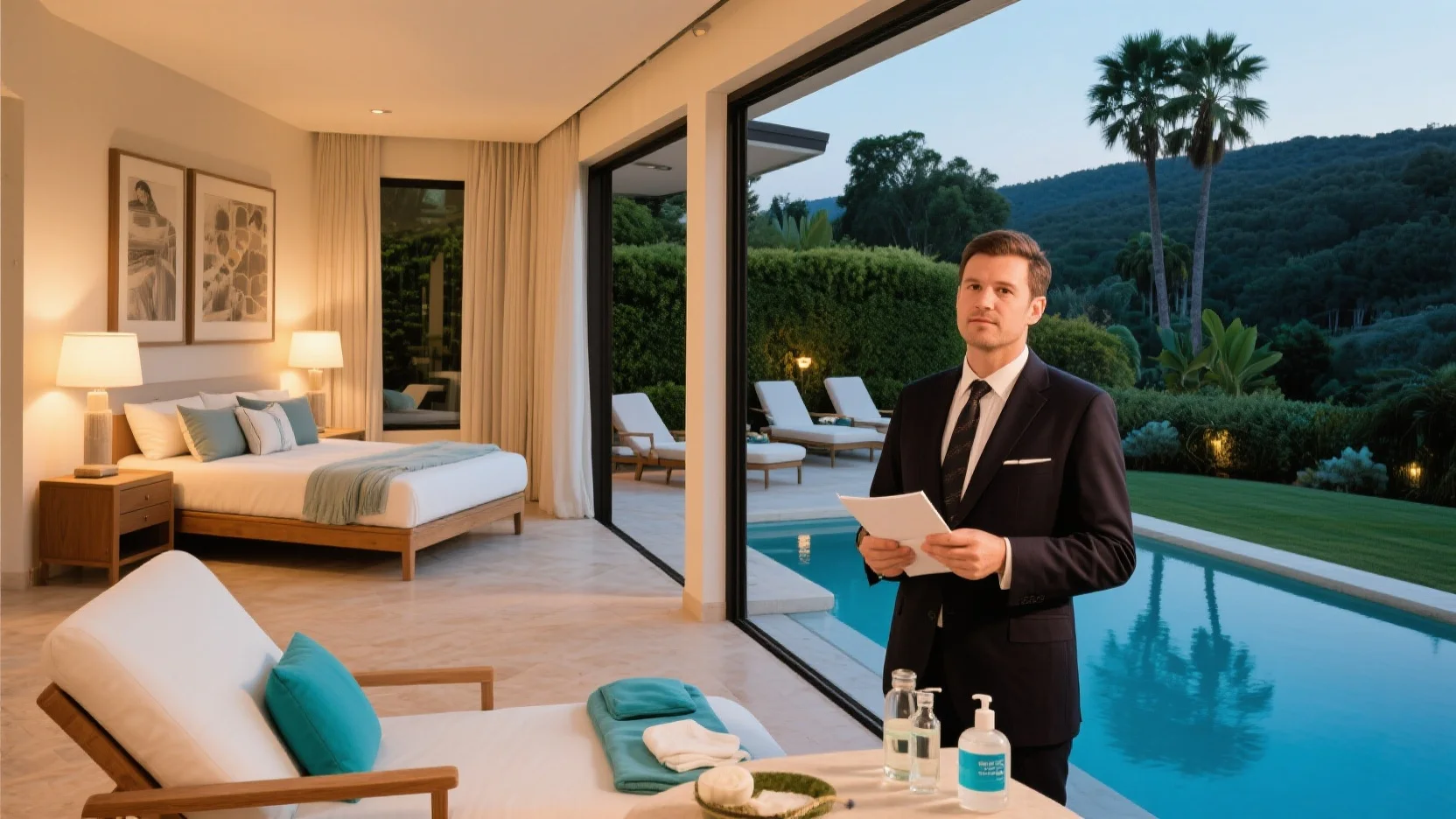
What role do holistic therapies play in luxury detox retreats, and how do they complement traditional addiction treatment?
Holistic therapies (acupuncture, neurofeedback, art therapy) address the “whole person,” complementing evidence-based methods like CBT and 12-step programs. According to 2022 Harvard research, clients using both approaches report 30% lower relapse risk. Key benefits include:
- Emotional Regulation: Mindfulness training reduces anxiety, a common relapse trigger.
- Physical Healing: Red light therapy or equine-assisted therapy aids detox-related fatigue.
These tools are detailed in our [Holistic and Exclusive Experiences] analysis, where top programs (e.g., SENSES WellnessClinic) blend ancient practices with tech for balanced recovery.

